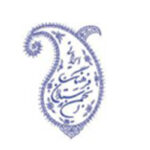Latest news on the situation of Bahá’ís in Iran

Iranian President Hassan Rouhani addresses the UN General Assembly in late September.
Photo: United Nations.
The Bahá’í World News Service website recently reported a number of developments that concern the situation of the Bahá’ís in Iran, which include Iranian President Hassan Rouhani’s failure to improve the human rights situation in Iran, new tactics to prevent Bahá’í students from pursuing higher education, and a new documentary film on the topic.
Iranian President Hassan Rouhani’s speech to the United Nations in late September failed to address a number of fundamental human rights issues in Iran, including the reason for Iran’s continued unjust persecution of Bahá’ís.
“A year ago, President Rouhani came to office making numerous promises to improve the human rights situation in Iran, including a pledge to end religious discrimination,” said Bani Dugal, the principal representative of the Bahá’í International Community to the United Nations.
“Sadly, he has failed to fulfill these promises, and his lack of any mention of human rights in his speech today at the United Nations only serves to underscore this.”
Earlier this month, UN Secretary-General Ban Ki-moon issued his annual report on human rights in Iran, also saying that the human rights promises of President Rouhani have gone largely unfulfilled.
“Despite President Rouhani’s signals of greater openness to freedom of expression, association and peaceful assembly, the Government has failed to put in place an enabling and safe environment that is conducive to free expression,” said Mr. Ban.
Ms. Dugal added that “the litmus test for Iran’s sincerity in addressing human rights is how it treats the minority Bahá’í religious community, which is well-known all over the world for its commitment to peace and poses no threat to government.
“Yet more than 100 Bahá’ís remain in prison, and thousands are deprived of access to higher education or discriminated against in the economic sphere, all as a matter of government policy. New tactics are used to increase the deniability of such discrimination.”
Such tactics include one apparent effort by the government to deprive Bahá’ís of any document that can be used to prove that they were denied access to higher education because of their religious beliefs. In previous years, Bahá’ís were told that their files were “incomplete” when they tried to get college entrance examination results. Whether flashed on a screen and printed out or delivered by letter, that message left a paper trail.
“The Iranian government’s new tactics in their treatment of Bahá’í students represent the latest evolution in a series of ploys designed to deny Bahá’ís access to higher education without raising the concern of the international community,” said Diane Ala’i, the Bahá’í International Community’s representative to the United Nations in Geneva.
“This new tactic is nothing but subterfuge and it completely contradicts repeated statements by Iranian officials to the world at large that Iran does not discriminate on the basis of religion in higher education,” said Ms. Ala’i.

An undated photograph of Shadan Shirazi, taken from one of the more than two dozen Persian-language websites that told of her exclusion from university after achieving a high score on the national entrance examination.
Ms. Shadan Shirazi, is a Bahá’í student that was blocked from entering university despite scoring 113th in the country’s college entrance examination in math and science from among approximately one million other Iranians.
Bahá’ís such as Ms. Shirazi are being told to go to the local testing office for their results. There, often after considerable evasion and runaround, they are ultimately shown but not physically given papers that say only Muslims and “officially recognized minorities” are allowed to be accepted into university. They are also singled out as Bahá’ís, despite the fact that they never made any such indication on examination forms or other papers.
The story of Ms. Shirazi’s injustice has also stirred the outrage of many Iranians, who have told and re-told it on more than two dozen Persian-language websites. Among other things, they report that one official, Morteza NorBakhsh of the EMEO Academic Board, told Ms. Shirazi and her family that as much as he might like to help, his hands are tied by higher authorities.
In the wake of such changes in tactics, a powerful new documentary tells the story of the Bahá’ís of Iran and their peaceful response to decades of state-sponsored persecution, had its UK premiere on 12 September.
Using interviews, personal stories and archival footage – often smuggled out of Iran at great personal risk – the film, titled To Light a Candle, highlights the constructive resilience of Iran’s young Bahá’ís who, in the face of systematic attempts by the Iranian regime to bar them from higher education, developed an informal arrangement known as the Bahá’í Institute of Higher Education (BIHE), through which they could have access to university-level courses.

Maziar Bahari’s documentary, To Light a Candle, tells the story of Bahá’ís if Iran and their peaceful resistance to decades of state-sponsored persecution.
The film was made by acclaimed journalist and filmmaker, Maziar Bahari, who has produced a number of other documentaries about Iran and was Newsweek’s Iran reporter from 1998 to 2011. Maziar Bahari is not a member of the Bahá’í community.
The film vividly documents that the threat of arrest and imprisonment is a daily reality for Iran’s Bahá’ís, as academics barred from pursuing their professions attempt to educate young people in private homes.
“For me – and this is one of the reasons I wanted to make this documentary – the Bahá’ís are a barometer for what’s going on in Iran,” said Mr. Bahari. “If the country opens up a little, perhaps through a reformist government, the Bahá’ís are given certain freedoms. When society is more repressed, it’s the Bahá’ís who are the first victims.”
Mr. Bahari used the premiere to announce an international “Education is Not a Crime Day,” to be marked on 22 February 2015, which he hopes will raise awareness of the right to education.
“These sorts of international events, which focus on some of the key themes the documentary raises, are not only instrumental in drawing attention to the hardships the Bahá’ís have had to endure over many decades in Iran, they incite positive change,” he said.
“While Bahá’ís continue to face injustice, and as long as Iranian authorities treat them as second-class citizens, much remains to be done.”

Muhammad Nourizad, a former journalists with the semi-official Kayhan newspaper, and Muhammad Maleki, the first head of Tehran University following the Islamic Revolution, are seen on their knees in humility before a group of Bahá’í students.
In another development, two former government officials involved in previous efforts to prevent Bahá’ís from going to university met recently with a group of Bahá’ís to apologize.
In a photograph posted to several Persian-language websites, Muhammad Nourizad, a former journalist with the semi-official Kayhan newspaper, and Muhammad Maleki, the first head of Tehran University following the Islamic Revolution, are seen on their knees in humility before a group of Bahá’í students.
Category: Highlights, World News








